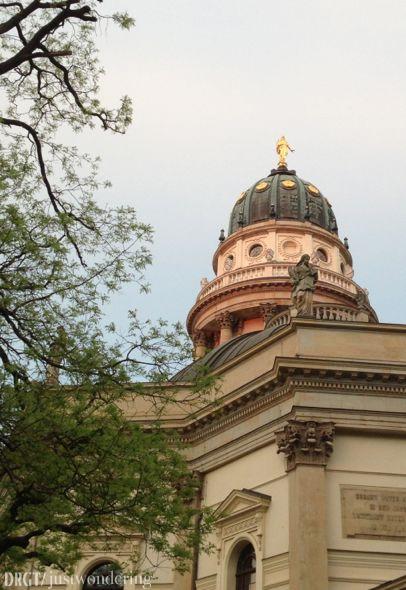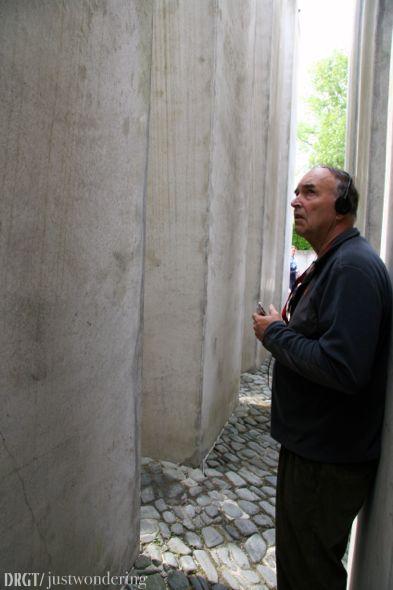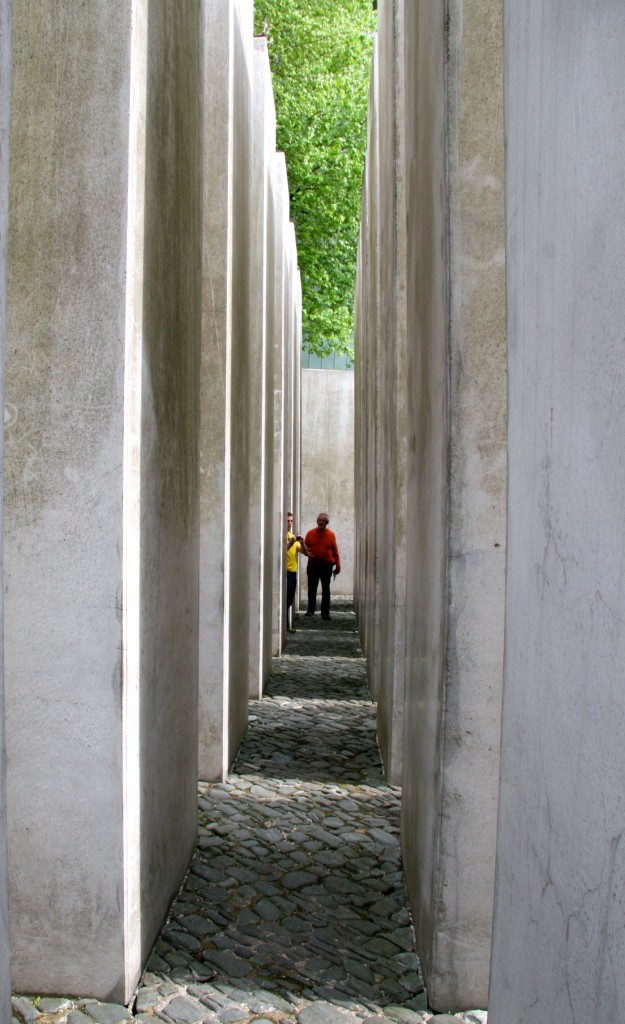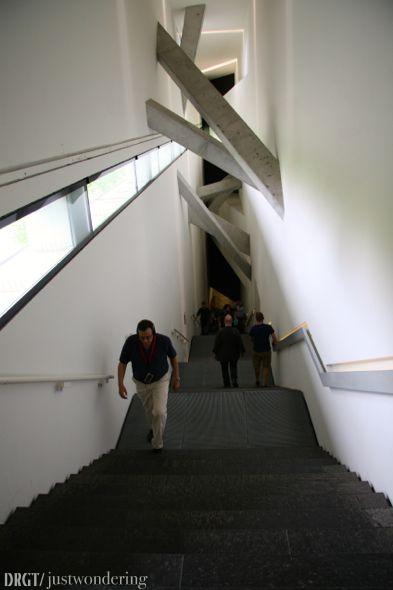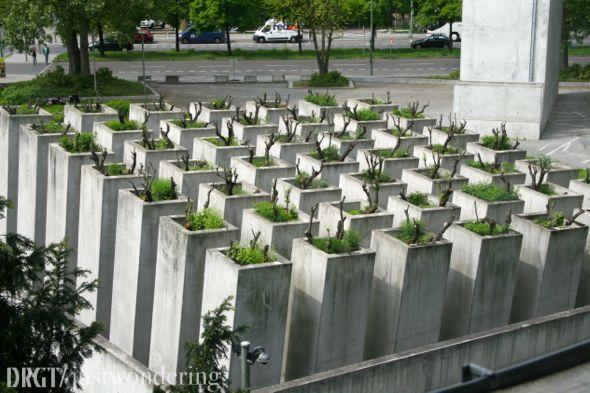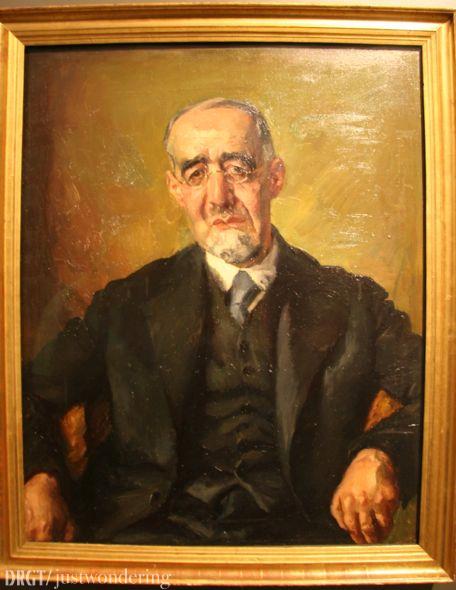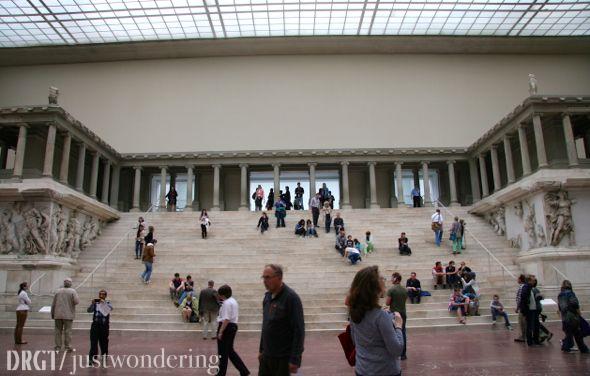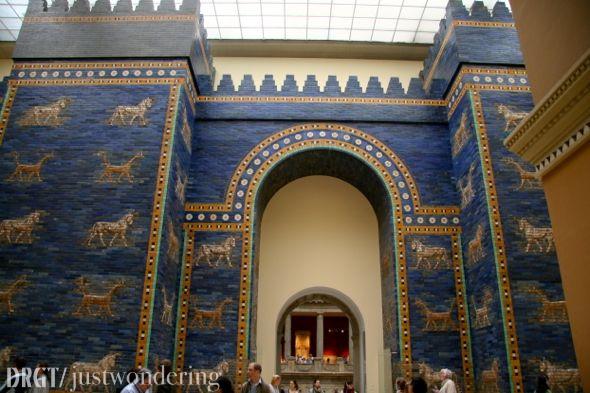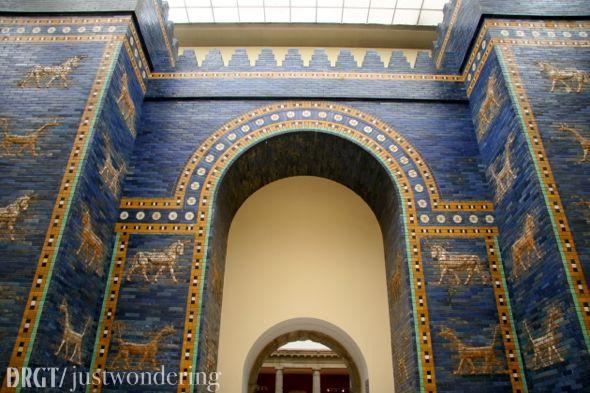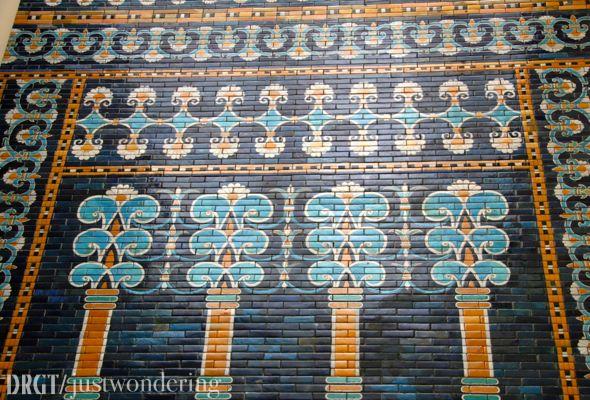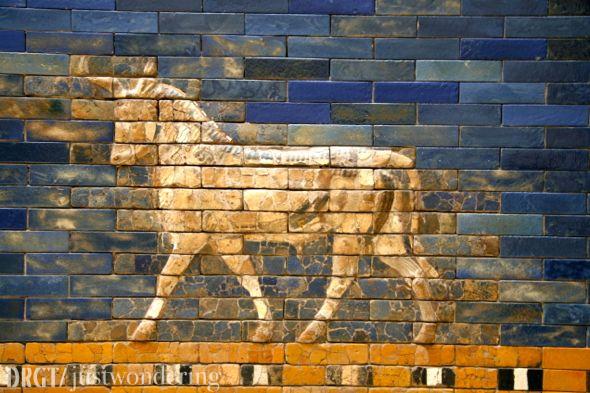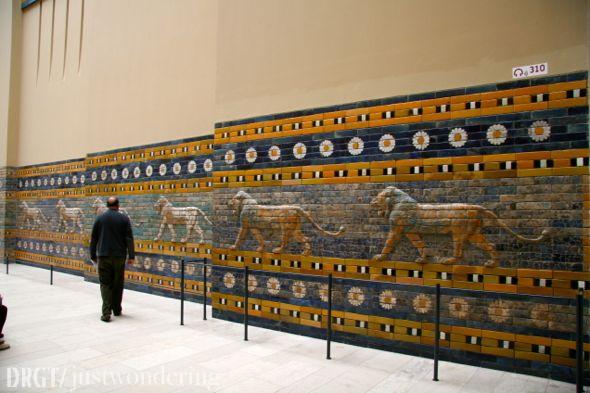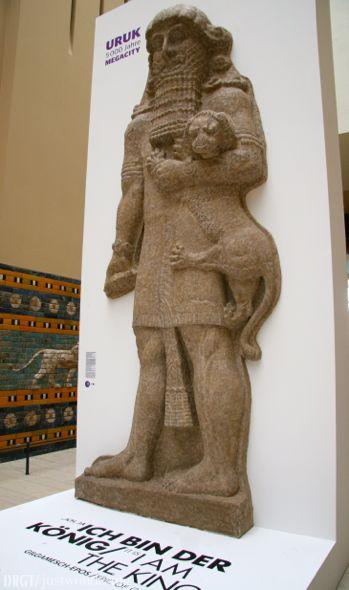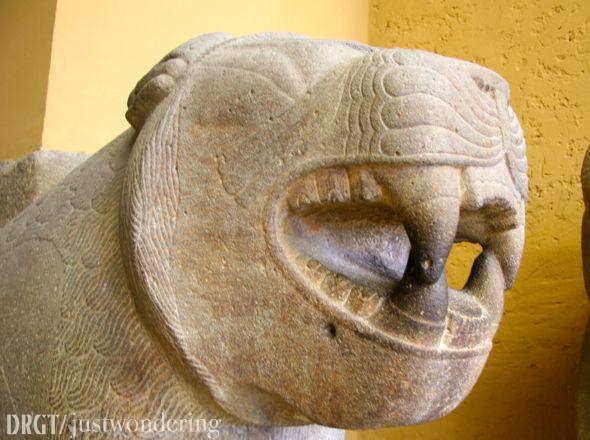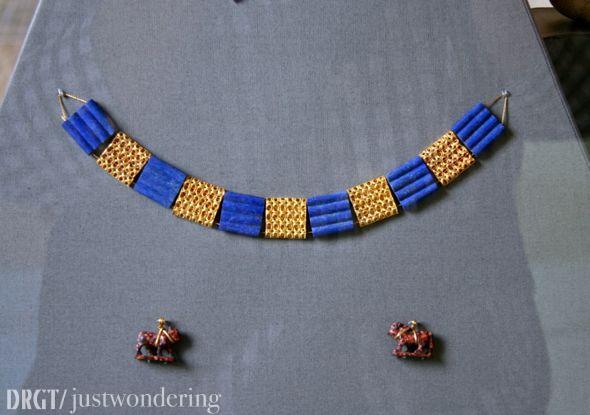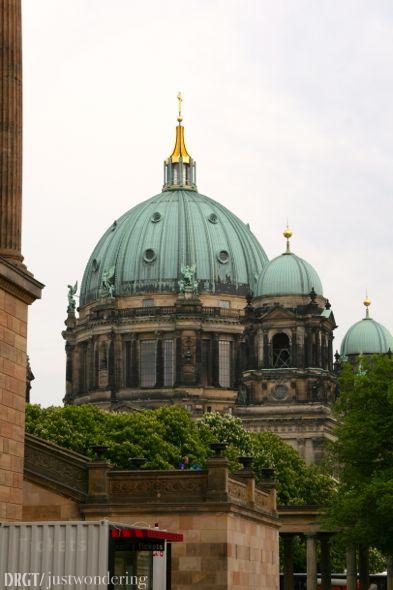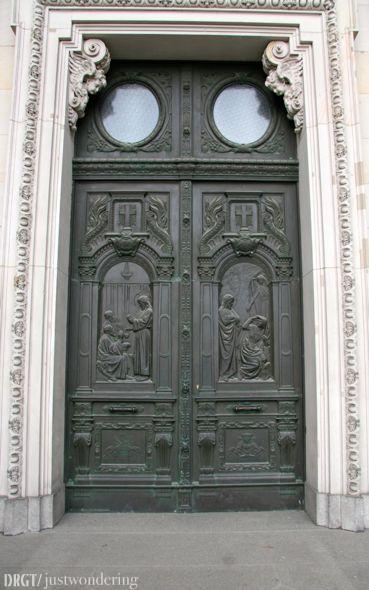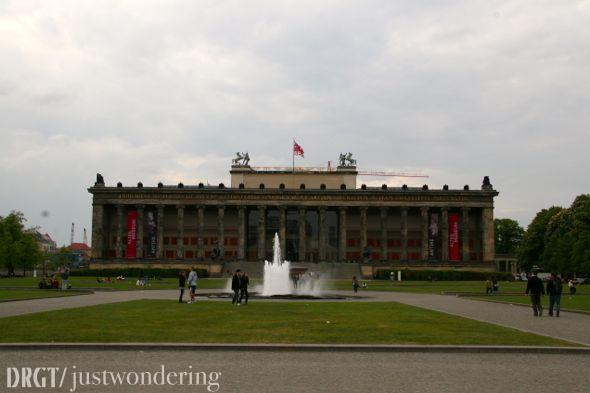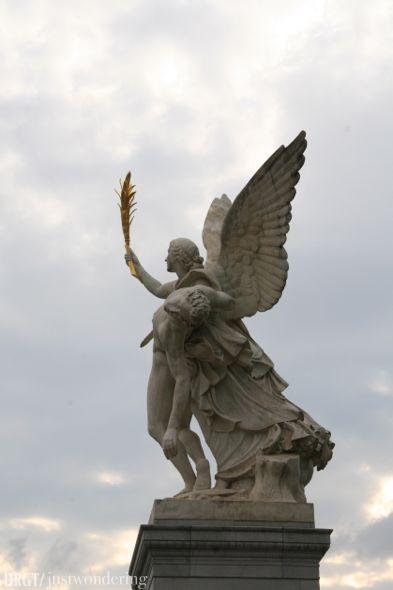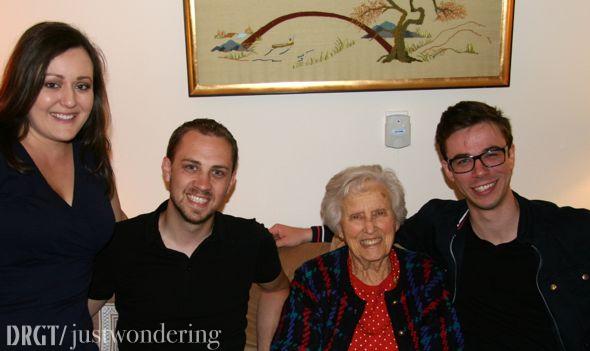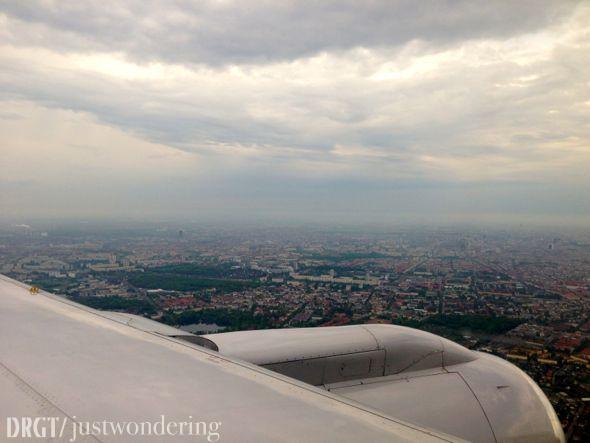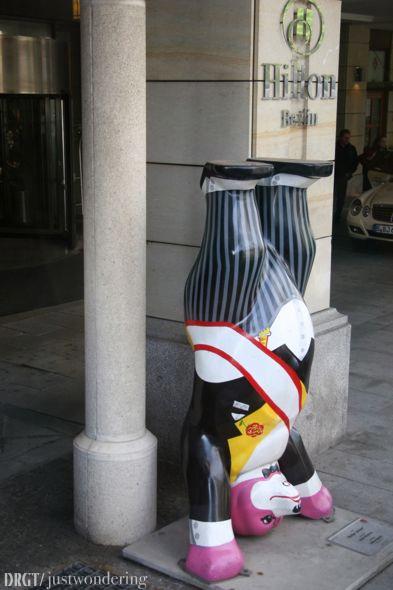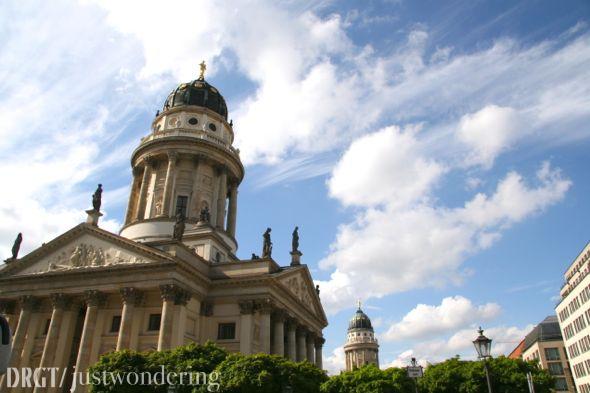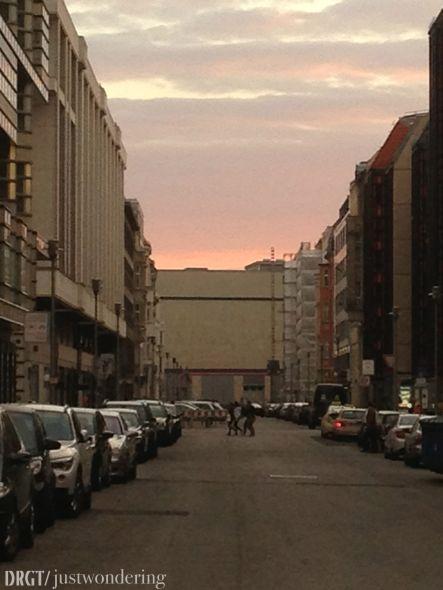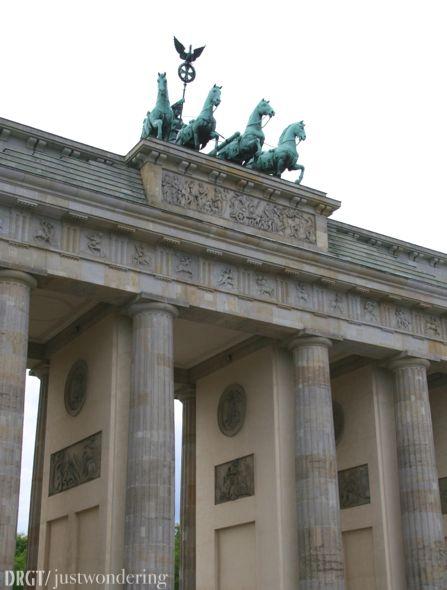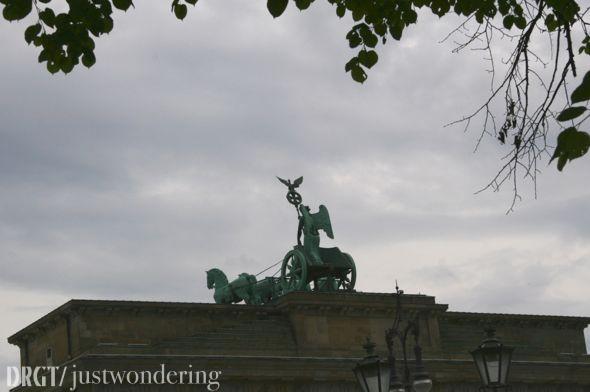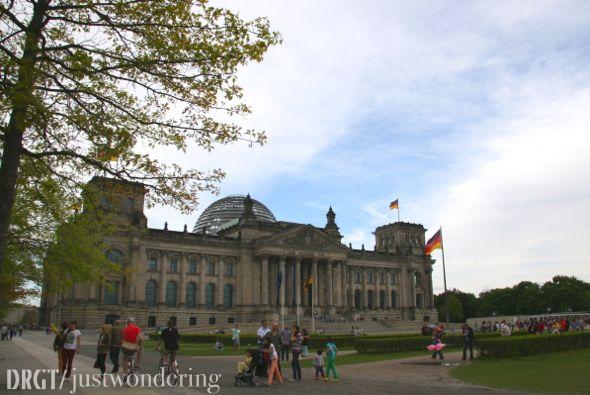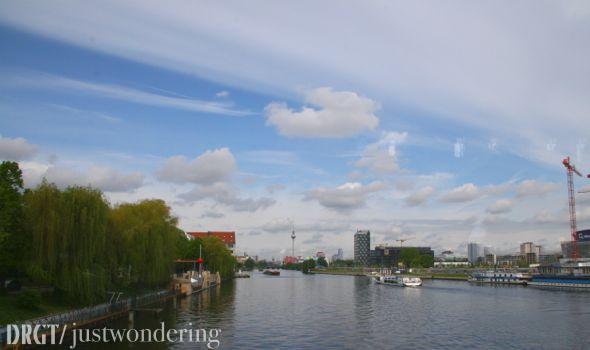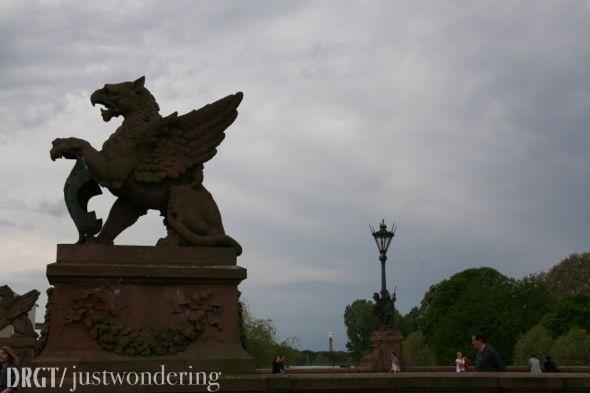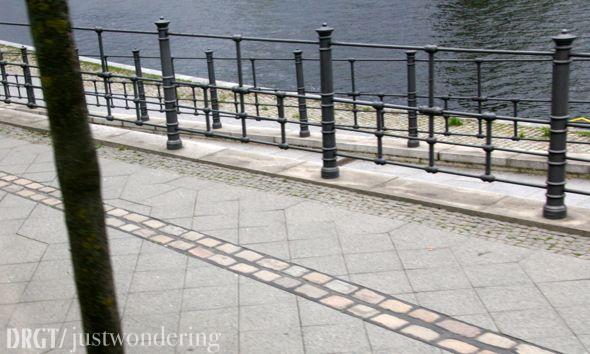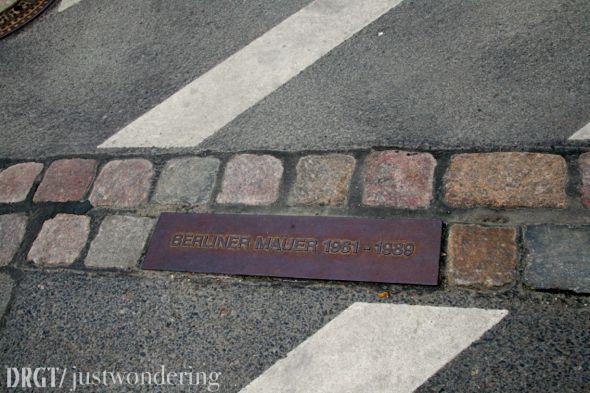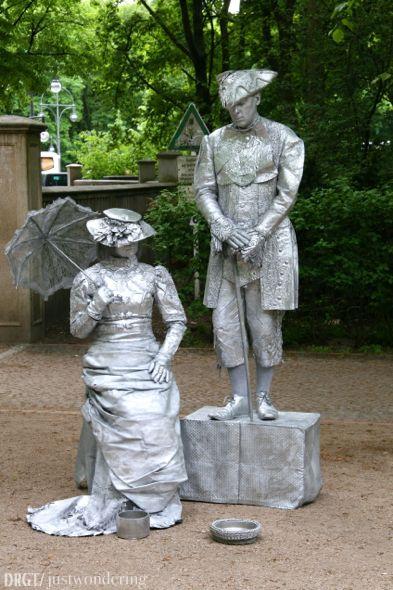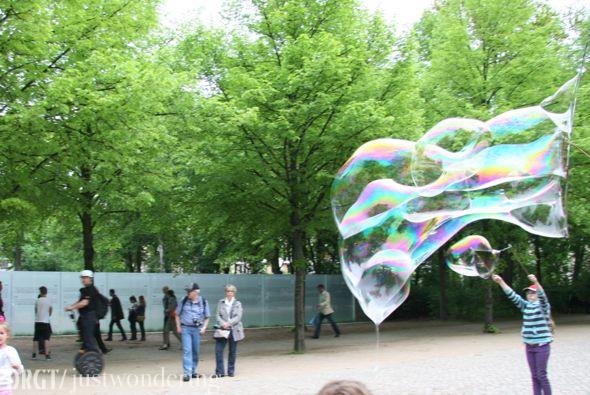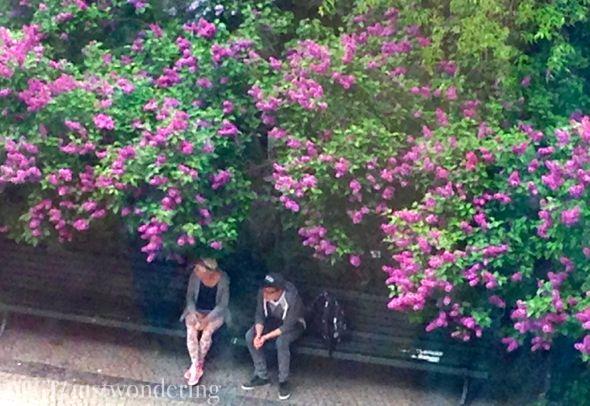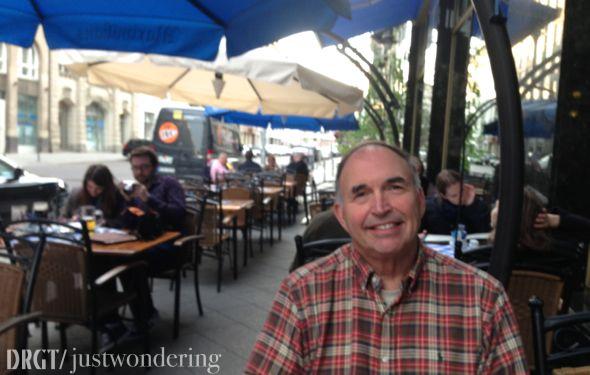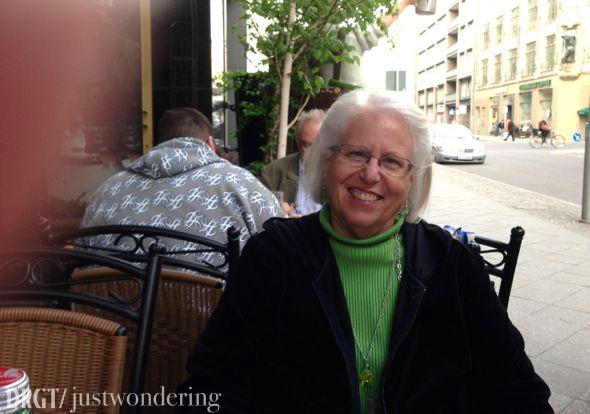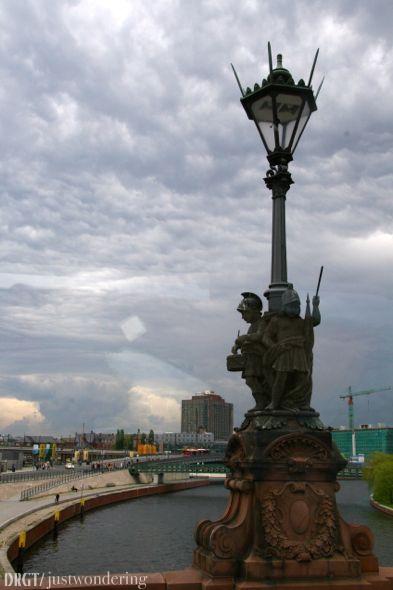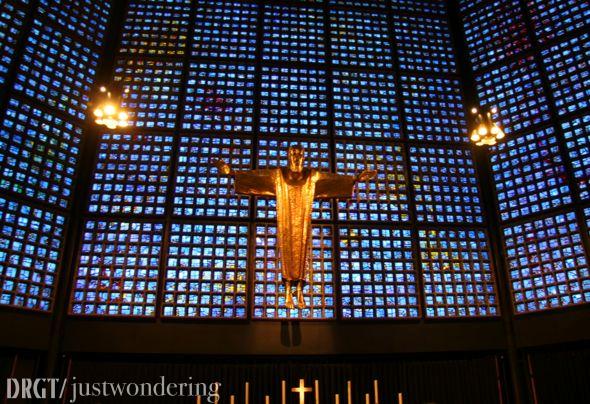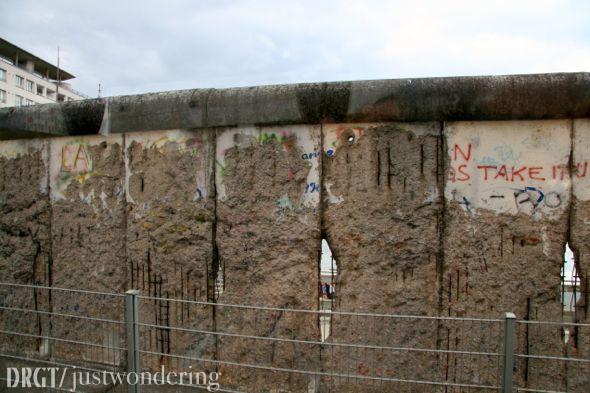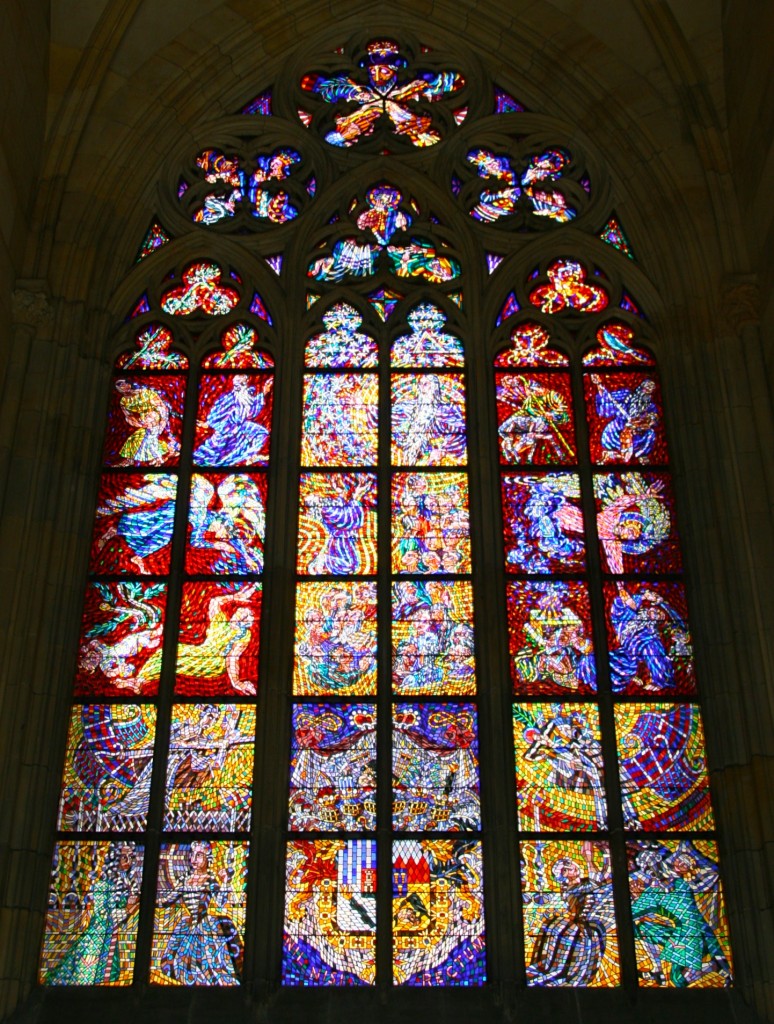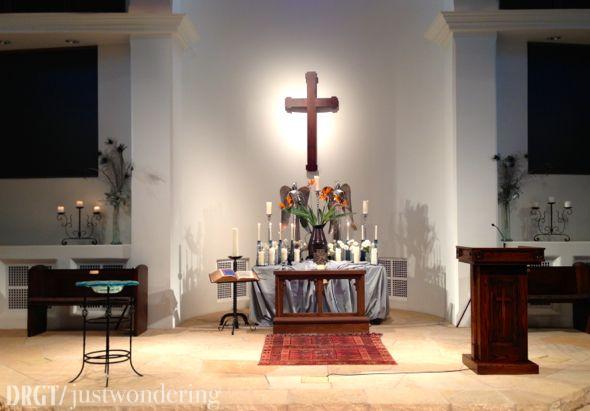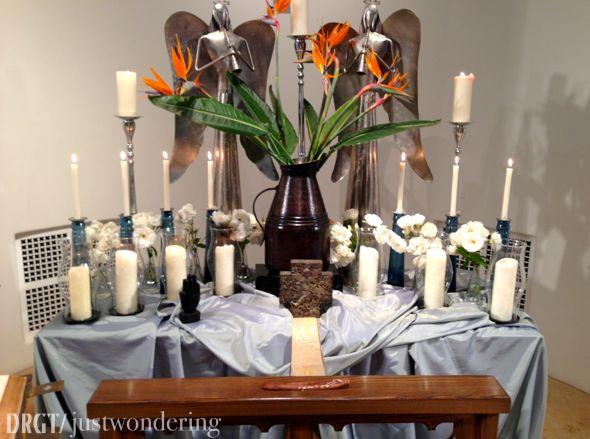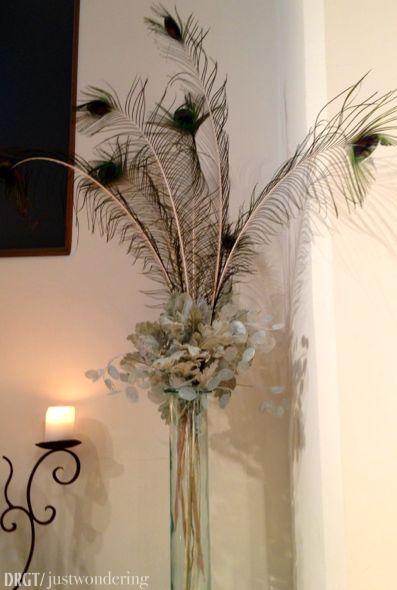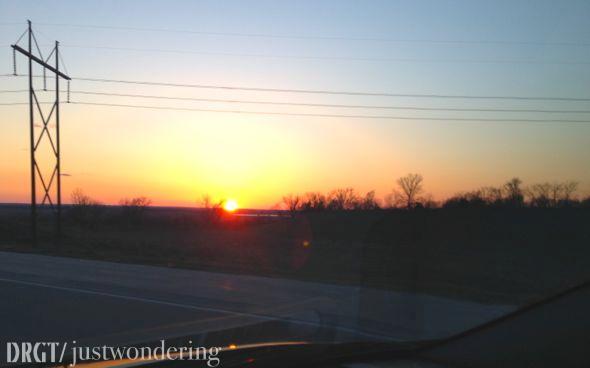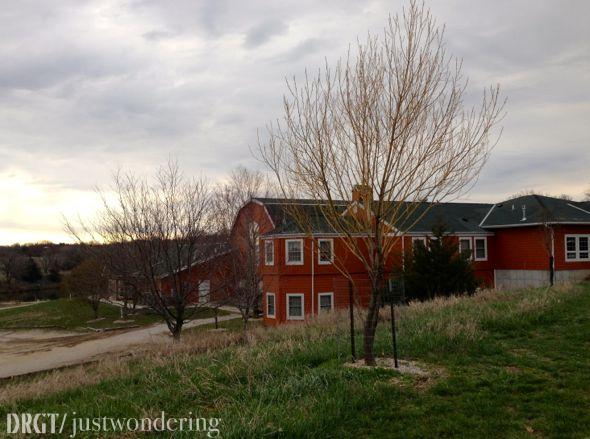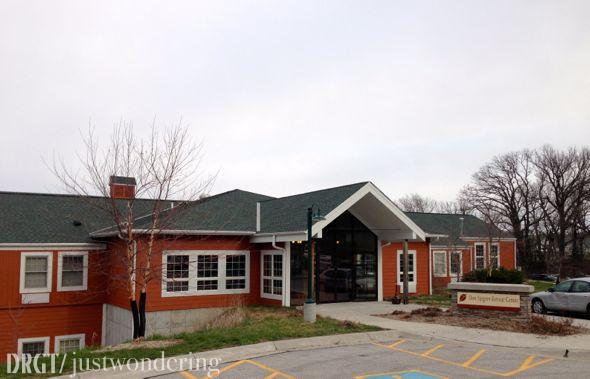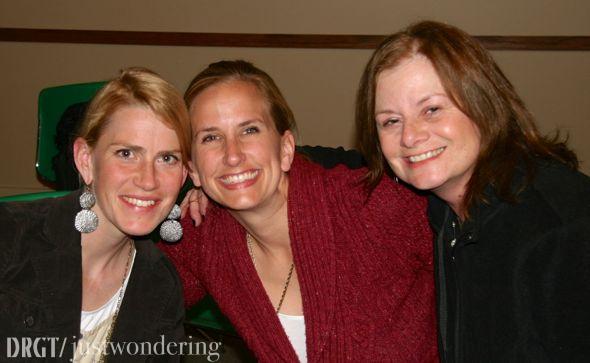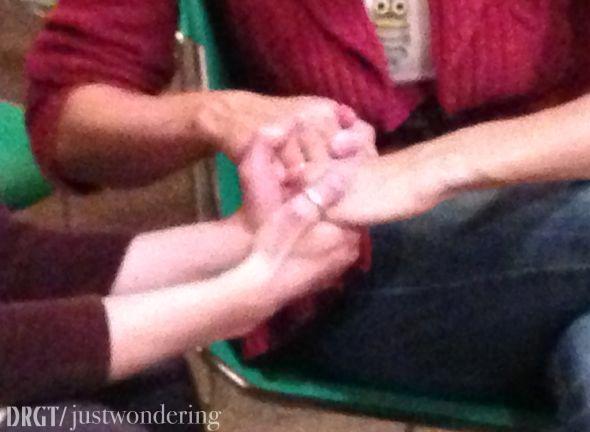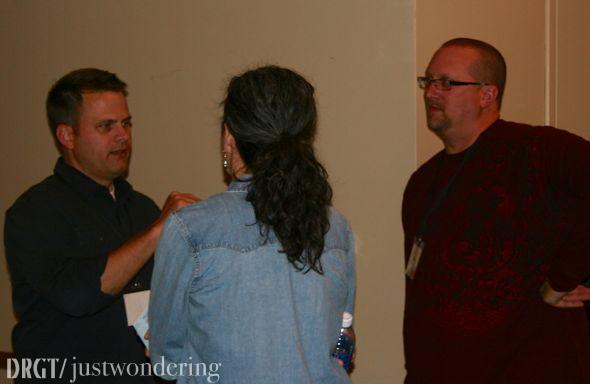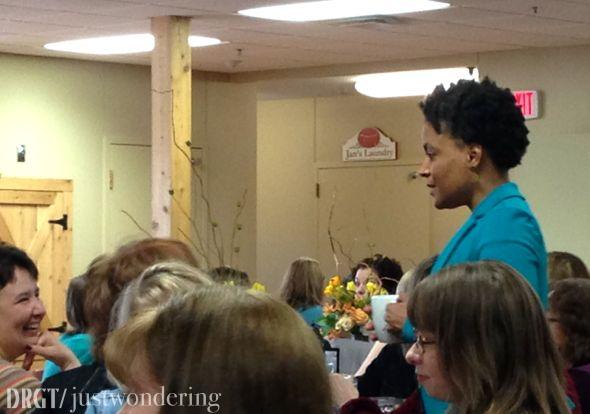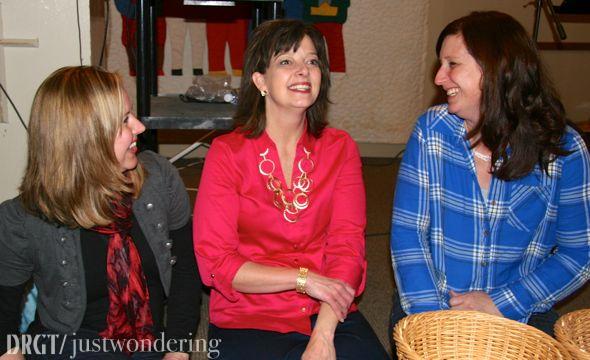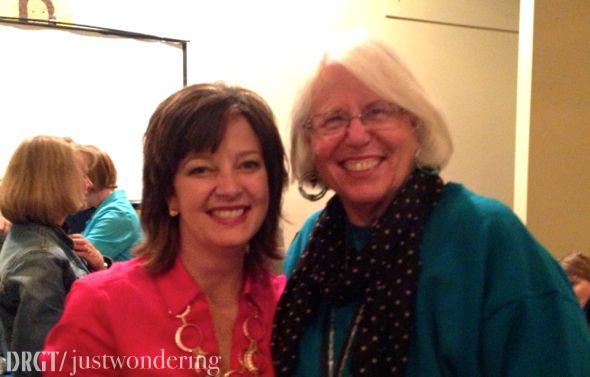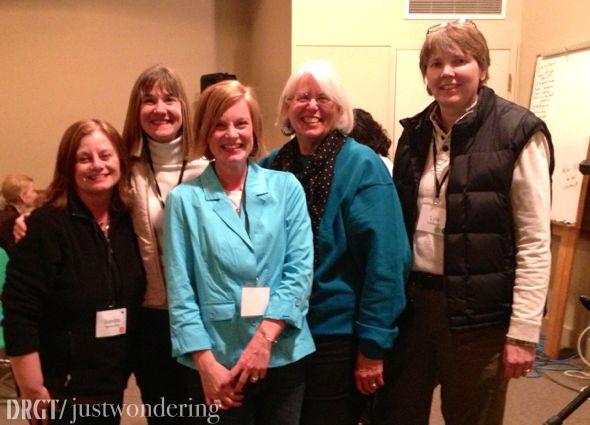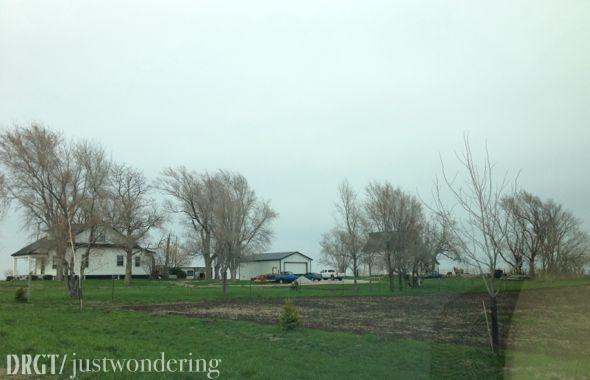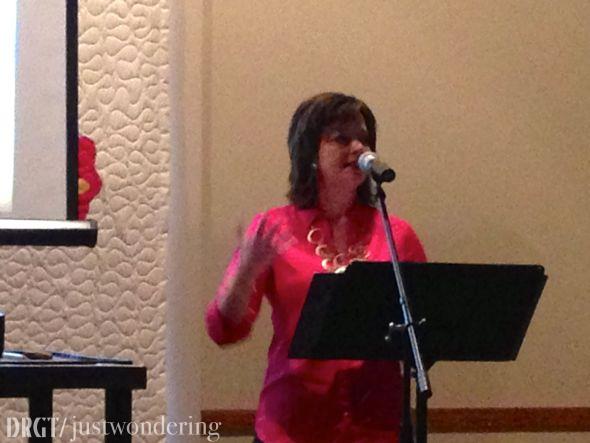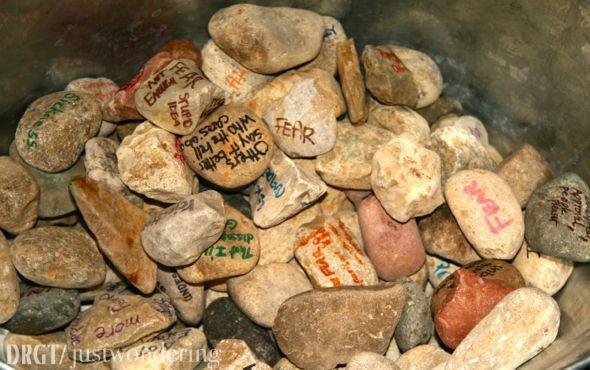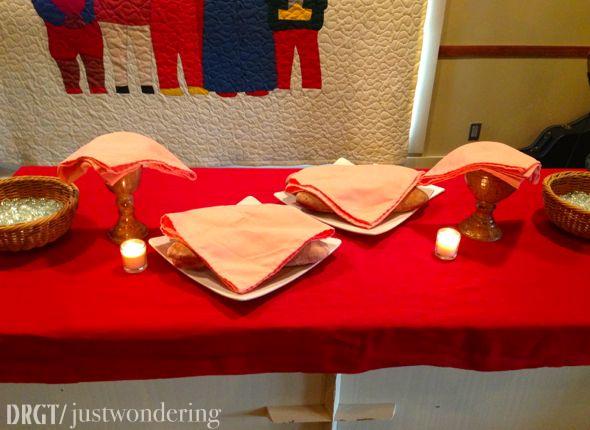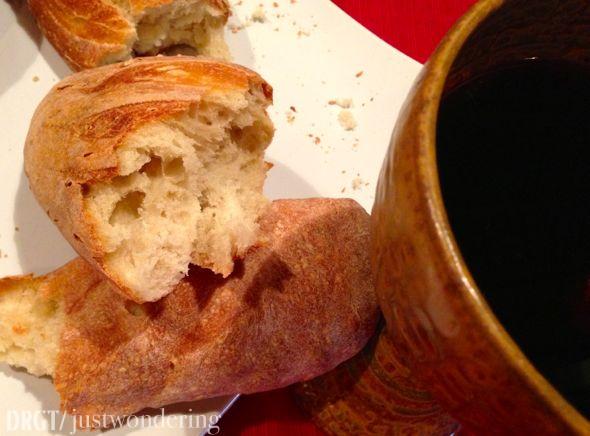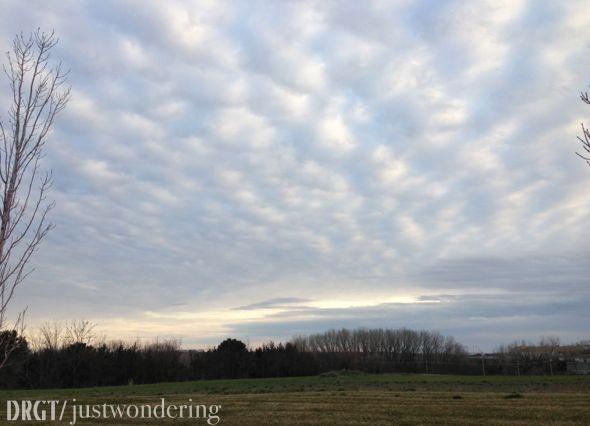This is the second in a series of what will be about 9-10 posts documenting and reflecting on our recent trip to eastern Europe. We spent 3 days each in Berlin and Prague and cruised the Elbe River between those two cities for 7 days.
You can read “Part One, Berlin Overview” here. . .
We arrived in Berlin on a Thursday, slept for a few hours and then walked around the city on our own for several more. On Friday, we joined a bus tour provided by our tour company (Viking River Cruises) and scouted out areas we’d like to visit on Saturday. Our son and his wife had strongly recommended we visit Museum Island, especially the Pergamon Museum and we had spotted the Jewish Museum from our bus tour, so Saturday became. . . Museum Day.
We left the beauty of our local town square behind,
. . . said a fond farewell to those sweet lilac bushes, and walked the mile and a quarter to this imposing building.
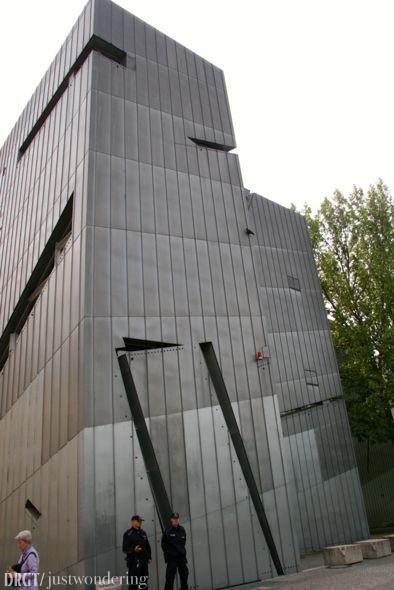 The Jewish Museum of Berlin is one of the most intimidating and disorienting museums I have ever had the privilege to meander. It is intentionally so. Documenting the long history of Jews in Germany, the building is strange looking, both outside and inside. You enter through an old, traditionally styled building and then must traverse an underground tunnel to enter the museum proper, a building designed by architect Daniel Libeskind and opened in 2001.
The Jewish Museum of Berlin is one of the most intimidating and disorienting museums I have ever had the privilege to meander. It is intentionally so. Documenting the long history of Jews in Germany, the building is strange looking, both outside and inside. You enter through an old, traditionally styled building and then must traverse an underground tunnel to enter the museum proper, a building designed by architect Daniel Libeskind and opened in 2001.
The floors are strangely slanted, the windows are askew, there is even a ‘nothing’ space which cuts through all three floors.
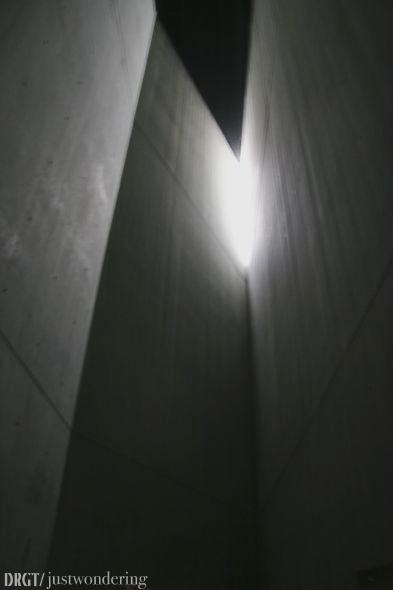 On the bottom floor, you walk into a room with nothing in it. Nothing. The walls rise three stories, the doors close and there is only the tiniest bit of light from the very top corner of the slanting space. It is deeply disturbing.
On the bottom floor, you walk into a room with nothing in it. Nothing. The walls rise three stories, the doors close and there is only the tiniest bit of light from the very top corner of the slanting space. It is deeply disturbing.
Outside, there is this collection of pillars, each built on cobblestones, leaning just slightly off center, with very limited space between them. They, too, rise high – at least two stories.
It is called the Garden of Exile. And it made me physically nauseous to explore.
To see the rest of the museum, you must climb three sets of stairs,
stairs that look like this . . .
. . . stairs that provide windows to the outside, but only in odd shapes and slits. From one of them, I looked down on the Garden of Exile and discovered the Russian silverberry bushes growing atop each pillar.
Trying to digest all the exhibits and simply experience the museum building itself requires enormous amounts of energy and concentration. We could have spent all day here, but knew we had more ground to cover.
One of the more interesting exhibits to me was the story of a 17th century woman who had a successful import/export business. Seeing the amount of traveling she did all over the continent of Europe and into parts of Russia was fascinating.
Something about this portrait captured the heartbreaking reality of so much of the story of Jewish people in Germany, and around the world. I found his expression haunting and moving. The one exhibit I regret not visiting (because we couldn’t find it!) was one called Fallen Leaves — 10,000 metal leaves strewn about the floor of the ‘voided space’ in the center of the museum, each with the names of victims of the holocaust. This exhibit is dedicated to all victims of war and violence and visitors are invited to walk on the leaves and listen to the sound of metal on metal as they do. 
We walked out the back of the building to this interesting covered walkway, then enjoyed some of the architecture between the museum and the hotel, where we had a light lunch in our room of cheese/crackers/peanut butter/apples that we’d purchased at a local market.
We were tired! So we took a cab over to Museum Island to visit the Pergamon. Even the cabdriver was unaware that they had closed the main entrance and that one of the MANY construction projects in the city was happening right there!
We walked around to the back and entered through this lovely colonnade instead.
And this is what the museum is named for: the Pergamon Altar, dug up in Asia Minor in the 19th century and carted back to Germany, piece by piece. This humungous piece dates from about 200 years before Christ. The entire museum was literally built around it in the early 20th century.
There are pieces missing, but overall, this exhibit is stunning. And sobering somehow. To build this required some pretty sophisticated engineering, don’t you think? We think we’re so smart – but wow, there’s been a lot of amazing stuff done over the centuries.
But here is the one that just got me! The Ishtar gate from the temple of Nebuchadnezzer in 575 BC. Made of glazed brick, with bas-relief pictures of royal and mythical animals, this thing was so big, I literally could not get an angle to shoot a picture. The gate itself is stunning, the side panels are gorgeous, and then there is the long hallway, marked by ‘the Processional Way’ — more of those cobalt glazed bricks and animals. Truly stunning.
As an extra-added bonus, there was a temporary exhibit on the history of cities, with archeological finds from Uruk. This city of about 5000 souls dates from the mid 3000s BC. I mean, this is old stuff. And it comes from an ancient urban area.
A bill of lading – catch the date! And it is tiny – about 3 inches square. How did they ever get all that cunieform writing on there??
And, of course, there was jewelry. Lovely jewelry — gold and lapis lazuli. Women have loved wearing pretty stuff forever.
(And who knows, could have been some men wearing this, too, right?)
Just as we walked out of the museum at 6:00 p.m., we heard the bells from the nearby cathedral, calling the faithful to evensong. Perfect timing.
We arrived just as the service was beginning and photography was not encouraged, but I did get a shot of the cupola above the nave and of the front door after the service was over. It was about 45 minutes of scripture and music, almost all on the organ. And it was gorgeous. A gift, at the end of long, tiring and very good day.
We walked back to the hotel by Humboldt University. . .
. . . and saw this stunning angelic figure as we did so.
The photo below is the one that I put on the cover of Volume 1 (of 3)
of our picture books from this trip.
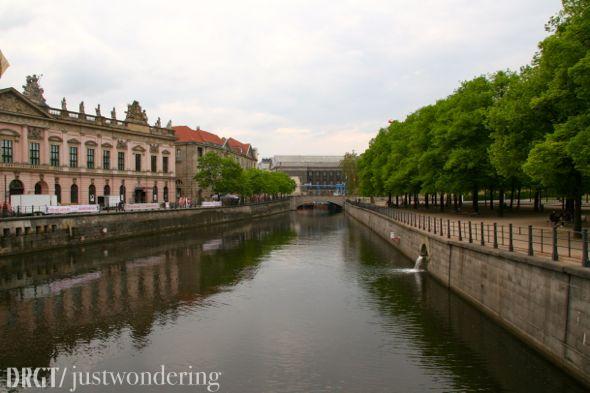 When I think of Berlin, I think of lots of things — activity, colorful architecture, museums and collections, new construction . . . and the river. The river is the heart of everything and wanders all around all things good to visit.
When I think of Berlin, I think of lots of things — activity, colorful architecture, museums and collections, new construction . . . and the river. The river is the heart of everything and wanders all around all things good to visit.
It’s a grand city and well worth any amount of time you can spend there;
we highly recommend it.
Next up – we begin our river cruise. I’l do that in about 5 posts, I think.
And then two posts on Prague.
